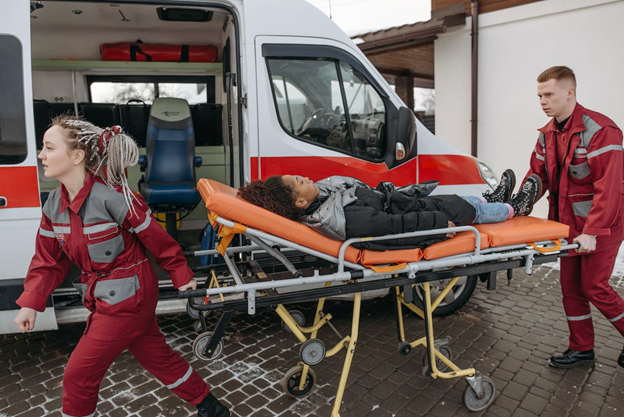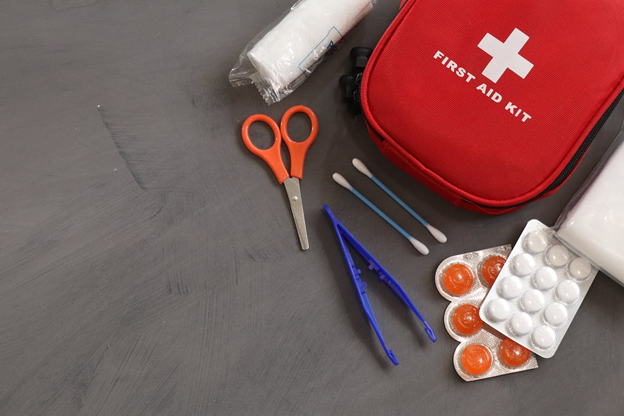No one likes to think about emergency situations, but they do occur and it’s important to be prepared. Knowing the right steps to take in an emergency can mean the difference between life and death. Being aware of what you should do and not do in a crisis is essential for staying safe. From fires to medical emergencies, here are some of the most important things you need to know in an emergency situation.

1. Collect Essential Information:
When an emergency arises, it’s important to collect as much information as possible. This includes the location of the incident and details about the injured person or persons. Knowing these facts can help first responders provide better assistance. In addition, it’s important to call 911 or another emergency service as soon as possible. This can help speed up the response time and ensure that everyone involved is receiving proper care. For example, if it’s a fire, knowing the address and how many people are in the home could help firefighters respond more quickly.
2. Remain Calm:
When an emergency strikes, it can be easy to panic and make bad decisions – but staying calm is essential. Taking time to assess the situation and think through your actions can help keep you safe. Keeping yourself composed and focused on helping those affected will be invaluable in this type of stressful situation. This includes listening to first responders and following their instructions. Also, if you are the first person on the scene of an emergency, don’t attempt to ‘play hero’. Leave that to the professionals and help them in any way you can.
3. Know How To Respond:
It’s also important to know how to respond in an emergency situation. This includes knowing basic first aid, as well as CPR and the Heimlich maneuver if necessary. Staying up-to-date on these skills and getting first aid training can help you administer effective care until medics arrive. In addition, having a first aid kit handy is essential for any type of incident. It’s also important to know how to use items from this kit correctly so they actually do more good than harm in the event of an emergency situation. This includes knowing how to use items like a tourniquet or bandages correctly.
4. Follow Your Plan:
Having an emergency plan in place can be extremely helpful when it comes to staying safe. This should include evacuation routes and meeting places for everyone involved. In addition, it’s important to have a communication plan in place so family members can check on each other’s safety. Having an emergency preparedness kit ready is also a must – this should include supplies like food, water, and flashlights as well as any necessary medications or unique items needed by those involved in the emergency situation. For example, if someone has a disability, making sure you have their emergency needs covered can be essential.
5. Stay Informed:
Staying informed during an emergency is essential. This includes listening to local authorities and following their instructions. Additionally, checking news reports can help provide valuable information on what’s happening in the area and how you or your family should respond. Knowing if the situation is getting worse or better is important for making decisions about evacuation routes or other safety measures. Additionally, it’s important to stay informed about any developing weather events or other potential emergencies in your area.
6. Look for an exit:
In an emergency situation, it can be easy to get overwhelmed or confused. However, if possible it’s important to try and look for an exit route in case you need to evacuate. Even if an evacuation doesn’t seem necessary at first, it could become so quickly – so being prepared is essential. It’s also important to make sure everyone knows the safest way out of a building or area and how to avoid any potential dangers during the process. However, if possible, it’s important to look for exits even in situations that don’t seem dangerous at first. This way, you are always prepared.
7. Use Common Sense:
It’s important to use common sense when responding to an emergency situation. Don’t make any decisions or take any risks that could potentially put yourself or anyone else in danger. Additionally, if you know someone who is experiencing a mental health crisis or has special needs, make sure they have the help and support they need during this time as well. Keeping everyone involved safe and sound should always be your top priority during an emergency situation. For instance, if you see someone in need of help, offer assistance. But always make sure you are taking steps to ensure your own safety as well.
8. Seek Shelter:
When it comes to an emergency situation, seeking shelter is important for both your own safety and that of others. This includes staying indoors or in a secure area away from potential hazards if possible. Natural disasters like floods, fires, or tornadoes, can be particularly important as these events are often unpredictable and can cause serious damage. Additionally, if you’re in an unfamiliar area or place it’s important to remember where the nearest shelter is located in case of an emergency. Also, if you’re in a public area, be aware of any potential exits or safe rooms that could provide protection during an emergency.
9. Have a Support System:
Having a support system in place when responding to an emergency situation can make all the difference. This includes having family members or friends who can provide emotional and practical support if needed. Additionally, it’s important to have people you trust who can act as sources of information and advice during this time. Having a good network of people you know and trust around you is invaluable for staying safe and informed during an emergency situation.

Emergency preparedness is essential for staying safe during an unexpected event. It’s important to make sure you have the necessary supplies and medication on hand as well as a plan of action in case of an emergency situation. Additionally, it’s important to stay informed about any potential dangers or weather events happening in your area and look for exits if possible. Using common sense when responding to emergencies is key, as well as seeking shelter if needed. Finally, having a strong support system can help provide emotional and practical support during this time. With these tips in mind, you should be better prepared for whatever comes your way!

